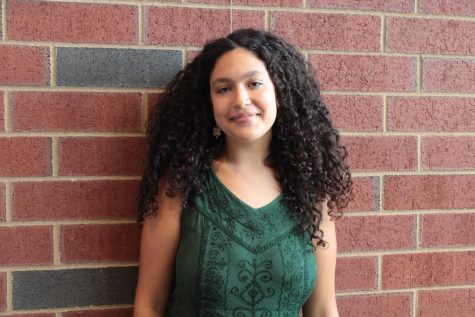Students Win the Fight for an Anti-Racism Resolution
Board members(top left to bottom right: Amber Concepcion, David Hutchinson, Lori Bedell, and Jim Leous) discuss the anti-racism resolution over Zoom on the evening of Oct. 5, 2020.
November 2, 2020
To further SCASD’s efforts to become a leader in equity and inclusion efforts, the Board of Directors passed an anti-racism resolution on October 5, 2020.
The resolution was brought on by the demands made this past summer by a group of State High students, Delta students, SCASD faculty, and other community members to address systemic racism and individual racism within schools. The resolution acknowledges the existence and history of institutionalized racism and its effects on the community, promises to uplift the voices of BIPOC students, and presents actionable steps to create an equitable school environment with historically accurate curriculum.
Delta senior Sophia Galvin, who has been in the district since kindergarten, explains that her experiences with microaggressions and racism in SCASD have made this resolution all the more important to her.
“As a student of color in the district, there was never anything in place to protect me. The school board made no promises to support me or my activism. This resolution is the first time I have seen action items; it gives us a way of holding the district accountable and ensuring that they do everything in their power to uplift BIPOC,” Galvin said.
Despite strong student support, the process to pass the resolution was slowed down by concerns from school board members over the complexity of the language. State High junior Rija Sabeeh has been instrumental in revising and passing the resolution.
“The main criticism was the verbiage and complexity of the language. There was a huge focus on readability and not the content of the resolution itself,” Sabeeh said.
On the night of Oct. 5, numerous students, teachers, and community members spoke during the school board meeting and voiced their strong support of the resolution.
Although the passing of the resolution was exciting for many, the process of passing the resolution raised questions about the weight of student voice and experience. Delta senior Tyler Ryland felt as though the board disregarded the voices of BIPOC students.
“When it comes to discussions about race and marginalization, students’ views and experiences are valued least of all,” Ryland said.
Similarly, Sabeeh is grateful that the resolution finally passed, but is disappointed by the prolonged timeline needed for it to happen.
“I know that it’s a victory, but so many students had to get involved and so many people had to speak up for one resolution. I am proud of the work my peers and I put in, but it shouldn’t have taken this long,” Sabeeh said.
Students and community members believe this process raised another important question: is it possible to create an equitable SCASD community when the school board does not reflect the diversity of its students?
Galvin believes that there needs to be a change in the school board in order for true progress to be made.
“If you’re not willing to listen to the students, you shouldn’t be a member of the board. Change is possible in any capacity,” Galvin said.
Now that the resolution is passed, students fighting for social justice in the community can feel supported by the school district’s written promise to the community. The hope is that frequent microaggressions, use of slurs, and discrimination against students of color will no longer be tolerated, and that will bring SCASD one step closer to creating an equitable and supportive environment for all.



lynn • Nov 13, 2020 at 12:42 AM
wonderful!